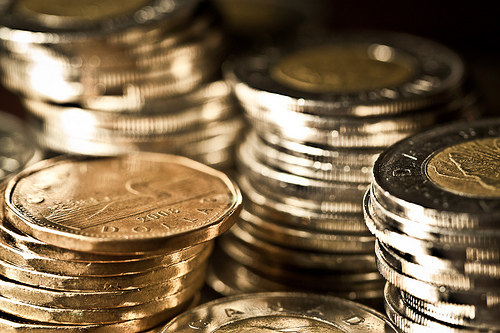By Grace Romund (The Cascade) – Email
Print Edition: March 14, 2012
Like so many other countries, Iceland suffered greatly during the global economic crisis of 2007 through 2010. In 2008, the peak of Iceland’s financial difficulties, the tiny northern country borrowed a staggering $2.1 billion from the International Monetary Fund. Now Iceland hopes to increase their financial stability and attract foreign investors. The Icelandic government is looking to adopt a foreign currency, but as Europe’s difficulties with the Euro only worsen, Iceland has set their sights on the Canadian loonie.
Currently, one Canadian dollar converts to 126 Icelandic kronas. While there have been rumours of Iceland potentially taking on the Canadian dollar, the Canadian ambassador to Iceland Alec Bones spoke on the issue a couple weeks ago in a radio interview in Ottawa. Bones said that Canada would be open to such a proposal if Iceland decided to approach Canada on the issue, provided that Iceland had no input on monetary policy. Bones’ radio interview was the day before he was to deliver a speech at a currency conference in Iceland.
However, Bones spoke too soon: the prospective deal had not yet been announced, and following his remarks, the Canadian government stated that Bones would not be in attendance at the currency conference and that Ottawa does not discuss other countries’ currencies. The problem is that Bones’ comments were premature, since Iceland has yet to make an official request.
But what if they do make an official request soon? Is spreading out our currency globally a good idea?
In the case of Iceland, in particular, Canadian currency would arguably be the best foreign monies for them, considering the already-existing strong connections between the two countries. The population of Iceland is 317,398 people (a little over double the population of Abbotsford). The number of Icelandic Canadians is close to 100,000; a large portion of the global Icelandic population resides in Canada. This is one tie. Another similarity between countries is that both Canada’s and Iceland’s economies are primarily resource-based.
Iceland would not be the first country to entirely adopt foreign currency. El Salvador and Ecuador have both made the US dollar their official currency over the past decade. In these countries, “dollarization” helped to stabilize the economy by halting high inflation rates. But the other side of that reality is that the Ecuadoran and Salvadoran governments have no control over monetary policy in their countries.
Iceland tried to deal with their inflation concerns by applying to enter the European Union (EU) so that they could adopt the euro as their currency. However, this possibility becomes less and less likely as the EU continues to deal with Greek debt, and economic instability in Ireland and Portugal. These problems are not going away anytime soon, and the last thing the EU wants is anything to do with Iceland’s inflated and unstable economy right now.
At first I thought that Iceland adopting Canadian currency wouldn’t be a problem. In fact, my initial thought was, “If I ever travel to Iceland I won’t have to deal with currency exchange!” After further thought, however, I think we should ultimately be wary of currency large scale sharing – just look at the headaches that the EU has been facing for so many years as a result of this one currency to rule them all. And maybe—now I feel truly Canadian—we should embrace diversity, even when it comes to currency. We’re different for a reason; amalgamation is not the answer.

